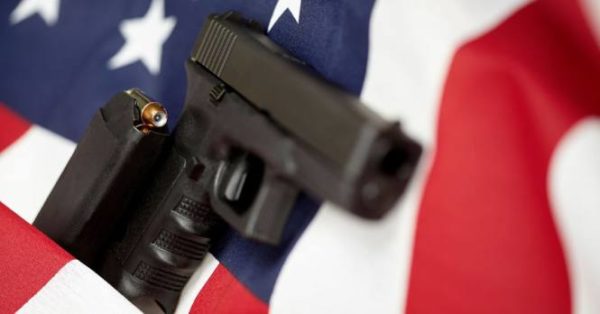Using A Gun For Self-Defense: California Laws And Consequences
Self-defense is a legal justification where the defendant claims that their actions were necessary to protect themselves, others, or property from an immediate threat of harm. According to California Criminal Jury Instructions § 3470, self-defense can be used as a defense in certain violent crime cases. When the evidence supports this claim, a jury may determine the defendant’s actions were reasonable, leading to an acquittal.
Murder and violent crimes are generally treated as serious felonies. However, there are circumstances where a defendant might be legally justified in using lethal force, commonly known as “self-defense.” Different states have their own rules about when and how much force—especially involving firearms—can be considered appropriate for personal protection.
In California, an individual facing charges for using a firearm may be found not guilty if their actions are considered “reasonable given the situation.”
Under California law, a firearm is any device intended to be used as a weapon that propels a projectile through a barrel by means of an explosion or combustion. This includes common firearms such as handguns, rifles, pistols, revolvers, and shotguns.
Understanding Reasonable Conduct in Self-Defense Cases
To determine whether conduct is “reasonable under the circumstances,” certain criteria must be met. These include:
- A sensible belief of imminent harm or danger of being killed or injured.
- A belief that force was necessary to stop the threat.
- Using no more force than necessary to address the situation.
Imminent Danger is defined as an immediate or present threat rather than one that may occur in the future. Reasonable Belief in a Threat requires that a person feels threatened, even if that belief is later shown to be inaccurate, as long as it was reasonable in the situation.
Justifiable Force must be proportional to the perceived threat. For instance, using deadly force when facing non-lethal threats, such as a slap, would be considered unreasonable.
Deadly Force, including firearms, is acceptable if the person reasonably believes they are in imminent danger of severe injury or death. Under California law, firearms may also be used to protect one’s home under the Castle Doctrine, though it does not extend outside of the property.
Imperfect Self-Defense
Imperfect Self-Defense considers subjective beliefs during an altercation, even if those beliefs are unreasonable. For example, suppose someone believes they are in danger, but that belief is later found unreasonable. In that case, the person may still reduce their charge from murder to voluntary manslaughter, serving a lesser sentence.
Shooting Someone In Self-Defense: What Happens
When you shoot someone in self-defense, the authorities will conduct an investigation, and the legal consequences can vary depending on the findings.
No Charges (Best Case Scenario)
Once the investigation is complete, a prosecutor will evaluate the facts. If they determine that the shooting was a justified act of self-defense, no charges will be brought against you, and the case will be closed.
Possible Charges
If the prosecutor concludes that the shooting wasn’t a valid act of self-defense, you could face criminal charges. These might range from serious felonies to lesser offenses, with outcomes varying from a dismissal or plea agreement to a trial conviction.
Murder
If the person dies as a result of the shooting, you could be charged with either first-degree or second-degree murder. First-degree murder is more serious, often involving an element of premeditation. Second-degree murder is generally less severe, typically occurring in the heat of a confrontation where the defendant may have been provoked but was not acting in genuine self-defense.
Voluntary Manslaughter
In cases where “imperfect self-defense” applies—meaning the defendant had an unreasonable fear or used too much force—a voluntary manslaughter charge may be filed. This charge might also come up in situations that escalate quickly, such as in a heated argument or when emotions run high, like discovering a partner’s infidelity.
Attempted Murder, Assault, or Mayhem
If the person is injured but survives, and the shooting isn’t seen as justified self-defense, charges like mayhem, attempted murder, or assault with a deadly weapon could be brought against you.
If you’ve discharged a firearm in self-defense, it’s crucial to pursue the assistance of a qualified criminal defense attorney, even if no charges have been filed yet. A local attorney familiar with self-defense laws can provide the guidance you need.
Evidence supporting a self-defense claim can include witness statements, injuries, crime scene photos, 911 calls, and medical records. These may help prove that the defendant’s actions were legally justifiable.


